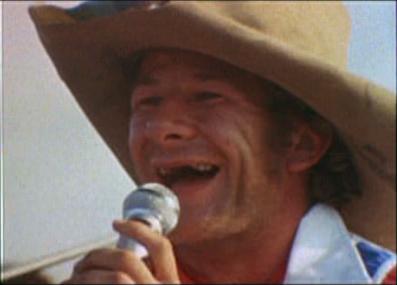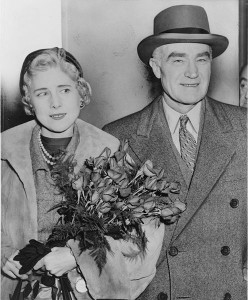
You ever wonder how someone–that person–became successful and famous and known all over the world? Maybe if things had gone differently and they didn’t get a particular opening, they would have been working a much smaller stage.
I think that way about the Rev. Billy Graham, the pulpit master who became a White House chaplain of sorts across several generations, thanks to two gatekeeper guardian angels, William Randolph Hearst and Henry Luce, anointing him America’s preacher. While Graham’s continuous access to the nation’s highest office may be unusual, at least he’s not a dunderhead like his son, Franklin, nor is he lacking in gravitas as is the grinning megachurch mogul Joel Osteen, an aspirationalist with heavenly hair.
Two excerpts follow from “Blunt Billy,” Roy Rowan’s 1975 People interview with Graham, in which the evangelist discusses becoming Hearst’s rosebud, and his disappointment in Richard Nixon over Watergate.
________________________
People:
Have you been surprised by your success?
Rev. Billy Graham:
Extremely. There were two men who were the keys to my impact and success. One was William Randolph Hearst. I never met him, but I was told by William Randolph Hearst Jr. that one night in 1949 his father came with Marion Davies to a service out of curiosity, went back to the office and sent a two-word teletype to all of his newspapers: PUFF GRAHAM! The next night the place was crawling with reporters and photographers. I said, “What’s happened?” They said, “You’ve just been kissed by William Randolph Hearst.”
People:
Who was the other man?
Rev. Billy Graham:
Henry Luce. At Bernard Baruch’s suggestion, Mr. Luce got on an airplane and flew to Columbia, S.C., where I was preaching and spent three days with me. We stayed in the same house. He wanted to see if I was real. We’d sit up until 2 a.m. talking. After that I was on the cover of LIFE two times and the cover of TIME once.
_________________________
People:
Why did you feel compelled to speak out on Watergate?
Rev. Billy Graham:
Richard Nixon was my friend. I admired him a great deal, and I respected him. I knew his father and his mother. I participated in the funeral of his mother. But just as Johnson was caught in the Vietnam war, Nixon was caught in Watergate. In defending some of his friends, Nixon just got deeper and deeper and deeper. He didn’t realize what was happening was actually breaking the law.
People:
Do you think President Nixon was personally guilty of misconduct?
Rev. Billy Graham:
I would have to say he was. I really believed in him, but I didn’t know that all that stuff was on tape. When the language came out which I had never heard, and the apparent misrepresentation to the American people, I was shocked and surprised. This was a Nixon I didn’t know.
People:
Did discovering this “Nixon you didn’t know” change your feeling about him?
Rev. Billy Graham:
I would have to use the word “disappointment.” Yet I still have great affection for Nixon, and great respect for him. As Special Watergate Prosecutor Leon Jaworski said, Nixon went through something worse than death. Nixon amazingly has lived through it. For about a year, we weren’t in contact much. Now our friendship has been reestablished. I stopped in San Clemente recently and spent an hour with him. He’s more like his old self before he became President. He’s joking, he’s kidding, he’s laughing a lot. Watergate was barely mentioned. You can see that he has overcome the psychological hump.
People:
How should Nixon make amends?
Rev. Billy Graham:
Nixon can tell the total truth in the book he’s writing. I think he will. But I could be wrong. I was wrong before.
People:
What do you think is in Nixon’s future?
Rev. Billy Graham:
Mr. Nixon is a tremendous student. After he lost the California governor’s race, he didn’t think he’d ever have a chance politically again. I said to him, “Mr. Lincoln once said, ‘I will prepare, and someday my chance will come.’ ” I said, “You get prepared, and there’ll be a place of service for you somewhere.” I was thinking he might be secretary of state. I was not thinking of him as President of the United States. Now I would seriously doubt if Nixon would ever be called back into government service.



